Fast Facts
- When: 15th Dec 2023 to 3rd Jan 2024
- Where: Alexandra Palace, London
- Watch: Sky Sports
- Official Website: PDC Darts World Championships
The PDC World Darts Championships is the pinnacle of the darting circuit. This is the tournament that often defines a player’s career and a win will see them go down in the history books. Whilst the PDC do carry a number of ‘major’ tournaments throughout the year, all roads lead the World Championships.
With darts as popular as ever, we often see a number of interesting offers on the tournament. These promotions can be for both bets on the outright winner and for the individual matches. We’ll list these below as they appear as well as providing predictions on who will be champion.
Existing Customer Free Bets & Money Back Offers
Please Note: This event has now ended.
Event Stats
Current PDC Major Title Holders
| Tournament | Month | Winner | Runner-Up |
|---|---|---|---|
| World Championship (2024) | January | Luke Humphries | Luke Littler |
| The Masters (2023) | January | Chris Dobey | Rob Cross |
| The UK Open (2023) | March | Andrew Gilding | Michael van Gerwen |
| Premier League Final (2023) | May | Michael van Gerwen | Gerwyn Price |
| World Matchplay (2023) | July | Nathan Aspinall | Jonny Clayton |
| World Series Final (2023) | September | Michael van Gerwen | Nathan Aspinall |
| World Grand Prix (2023) | October | Luke Humphries | Gerwyn Price |
| European Championship (2023) | October | Peter Wright | James Wade |
| Grand Slam of Darts (2023) | November | Luke Humphries | Rob Cross |
| Players Championship (2023) | November | Luke Humphries | Michael van Gerwen |
Schedule
- Qualifying – Up to end November 2023
- Round 1 – Friday 15th to Wednesday 20th December 2023
- Round 2 – Friday 15th to Saturday 23rd December 2023
- Round 3 – Wednesday 27th to Friday 29th December 2023
- Round 4 – Friday 29th & Saturday 30th December 2023
- Quarter-Finals – Monday 1st January 2024
- Semi-Finals – Tuesday 2nd January 2024
- Final – Wednesday 3rd January 2024
About The PDC Darts World Championship
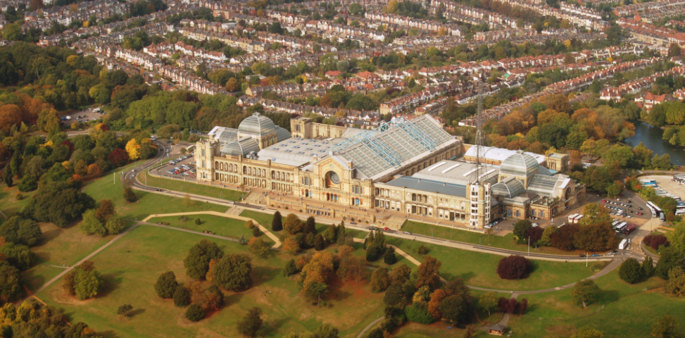
The tournament takes place at Alexandra Palace in London, which is affectionately known as ‘Ally Pally’. It hasn’t always been hosted here, however, as up until 2007 it was held at the Circus Tavern. The popularity of the sport and, in turn, the event meant that it needed to move to bigger premises to accommodate the demand for tickets.
The first PDC World championship was held in 1994, the year after a split between the two governing bodies of the British Darts Organisation and the World Darts Council occurred.
The Championship takes place over December and early January, only breaking for three days over Christmas and on New Year’s Eve. It’s highly regarded as a Christmas stable these days, making it awash with partygoers from all over the world.
From the 2018/19 tournament, to qualify for the event you must either be in the top 32 in the world rankings, the top 32 in the Pro Tour Order of Merit or be one of 32 qualifiers from around the world which will include at least 2 female players.
Once into the tournament proper, the 96 players will take part in a straight knockout, resulting in them being whistled down to two who will take place in the final. Players are seeded depending on how they qualified and also what their world ranking was in the weeks leading up to the event. The 32 seeds will enter the competition at Round 2, with the Pro Tour and International qualifiers beginning at the first round.
The History of World Darts
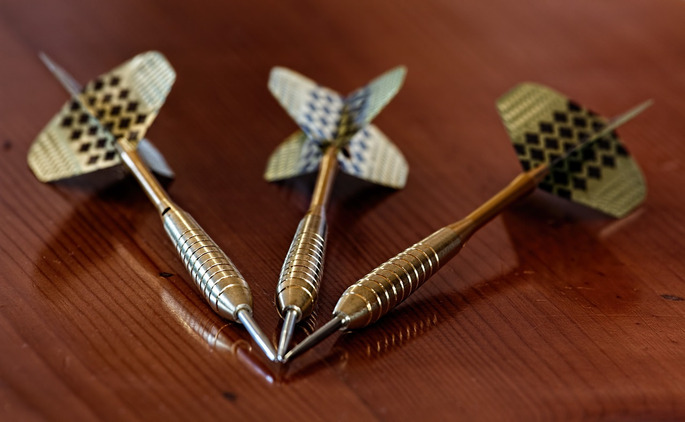
In order to understand the importance of the PDC and the World Championships, it’s crucial to also have some knowledge of the split in world darts which lead to its creation.
Prior to 1993 darts had been a unified sport, with players around the country taking it seriously since the foundation of the National Darts Association in 1924. For the next few decades things remained much the same, with the disagreement that led to the sport’s fracturing not coming to fore until its popularity skyrocketed.
Whether it be the Premier League’s separation from the Football League or the split between the two branches of darts, money is so often the driving force that shapes the future of a sport. Darts had first started to hit the public conscience when the Westward TV Invitational was broadcast live to the south-east of the nation on Westward Television. Its popularity grew steadily so that by a decade later it was considered to be worthwhile enough for ITV to show the News of the World Championship live. The sport’s increasing appearance in the public eye led to Olly Croft forming the British Darts Organisation in 1973.
The BDO’s Early Years
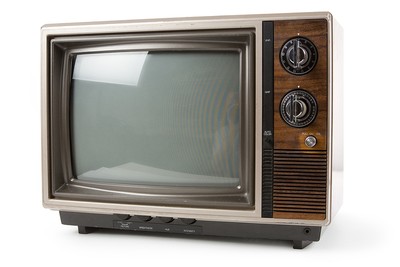 The British Darts Organisation became the sport’s governing body, taking responsibility for the organisation of games around the country. The result was that there was now an official body that could put the sport’s agenda first and foremost in its dealings, as well as represent the players moving forward. As the 1970s progressed, darts began to grow even more in popularity and more and more events were being broadcast live to more than just the south-east or north of the country. ITV started showing the World Masters and World Cup, amongst other events, whilst the BBC began broadcasting the British Open from 1975.
The British Darts Organisation became the sport’s governing body, taking responsibility for the organisation of games around the country. The result was that there was now an official body that could put the sport’s agenda first and foremost in its dealings, as well as represent the players moving forward. As the 1970s progressed, darts began to grow even more in popularity and more and more events were being broadcast live to more than just the south-east or north of the country. ITV started showing the World Masters and World Cup, amongst other events, whilst the BBC began broadcasting the British Open from 1975.
This increase in television coverage, which was in large part thanks to the work of the BDO, led to some players turning professional. They were able to because they were now high-profile, household names as people had been watching them on television. Unfortunately, as the 1970s turn into the 1980s the sport was shown less and less. ITV chose to axe World of Sport in 1985, which was considered to be a bad thing for darts. It was also the start of TV companies showing fewer darts tournaments, which in turn annoyed some of the players as they felt that they were being let down by the BDO and that the organisation weren’t looking out for their interests enough.
Player Rebellion and the Formation of the WDC
 The turn of some players into professionals meant that they couldn’t afford to be on television less as this would result in a reduction of their ability to bring in decent sponsorship money. As the 1980s wore on, more and more players began to question what exactly it was that the BDO was doing on their behalf. The organisation banned them from wearing sponsorship on their shirt, for example, as television companies didn’t want to give companies what they viewed as ‘free’ advertising. That was problematic for them, especially as they were receiving fewer TV appearances as it was.
The turn of some players into professionals meant that they couldn’t afford to be on television less as this would result in a reduction of their ability to bring in decent sponsorship money. As the 1980s wore on, more and more players began to question what exactly it was that the BDO was doing on their behalf. The organisation banned them from wearing sponsorship on their shirt, for example, as television companies didn’t want to give companies what they viewed as ‘free’ advertising. That was problematic for them, especially as they were receiving fewer TV appearances as it was.
Though the BDO felt that they were doing as much as they can to push the agenda of the sport of darts at a time when its more loutish nature was becoming less and less popular, they didn’t do much to appease the top players. As an example, they released a VHS of the 1992 World Championship Final without consulting with the players that took part in it. They then didn’t offer those players any money for their appearance in the VHS. In the same year, sixteen professionals left the BDO and formed their own organisation that they named the World Darts Council.
The Professional Darts Council and the Tomlin Order
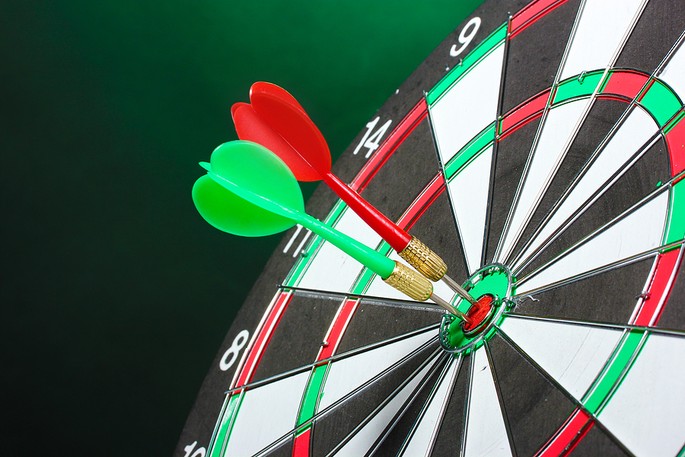
Having spent a number of years pushing the BDO to change its attitude, the players that formed the WDC, which would later change its name to become the Professional Darts Corporation, decided to do things in their own manner. They took the British Darts Organisation head on, bolstered by the fact that all of the previous winners of the BDO World Championship had left the group to form the WDC. They all still took part in the Embassy World Championship in 1993, but the BDO’s decision to ban the players from wearing WDC insignia angered them enough to mean that that was the last tournament to take place in a unified world of darts.
From that moment on, World Darts Council members decided that they would only take part in competitions that the WDC was the governing body of, starting with their own World Championship in 1994. It was soon considered alongside the World Darts Championship and the World Darts Federation’s World Cup of Darts as one of the most prestigious trophies to win in the sport. The problem was that there was still a huge degree of animosity between the WDC and the BDO, resulting in the two of them going to court. In the end matters were decided with an out-of-court settlement known as the Tomlin Order. From then on, the BDO agree to recognise the WDC and allowed the players to choose which events to compete in.
One thing that the breakaway PDC did have over their now rivals the BDO was the biggest names in darts, which included Dennis Priestley and Phil ‘The Power’ Taylor at the time. In fact, it was Priestley who went on to win the first Championship in 1994, receiving £16,000 for his troubles. These days the winner will be looking at taking home a cheque worth £500,000 from the £2.5 million prize pool.
Continued Animosity and Defections
The Tomlin order should theoretically have put an end to the animosity between the two new branches of darts, given that the World Darts Council dropped its claim to be the sport’s governing body around the world and instead recognised that this was the remit of the World Darts Federation. It was also agreed that the British Darts Organisation was the governing body for the sport in the United Kingdom. As a result of the Tomlin Order, the WDC rebranded as the Professional Darts Council, or PDC.
The agreement was supposed to encourage the freedom of darts players in the UK to choose which competitions they wanted to play in, with the Tomlin Order declaring that players from the BDO Championship and PDC Championship one year couldn’t then appear in the other competition the following year. However, this agreement was thrown into turmoil in 2006 when Raymond van Barneveld secretly negotiated a clause in his BDO contract that meant that he was able to reach the final of the BDO Championship before competing in the PDC World Championship just a week later, which was something that the Tomlin Order should’ve made impossible.
Televised PDC Darts

One of the immediate results of the split between the PDC and BDO was a deal with Sky Sports to broadcast three PDC tournaments every year, employing new techniques in their coverage to do so. Whilst the BDO’s tournaments tended to be reduced down to highlights for broadcasting purposes, Sky Sports gave the sport its own channel and showed most of the events live and in full.
Those behind the split in darts would argue that they were right to force the issue. Sky Sports show numerous PDC tournaments a year nowadays, with events broadcast as far afield as Australia, Japan and Singapore. In 2007 the PDC signed a deal with ITV, then three years later Sky Sports began showing Premier League Darts. Even the BBC, which had previously not shown any PDC events, agreed to cover the organisation in 2016 with the formation of a new tournament called the Champions League of Darts. Channel 4 weren’t to be left behind, agreeing to show the BDO World Championship in 2017 and 2018.
Changing the Image of Darts
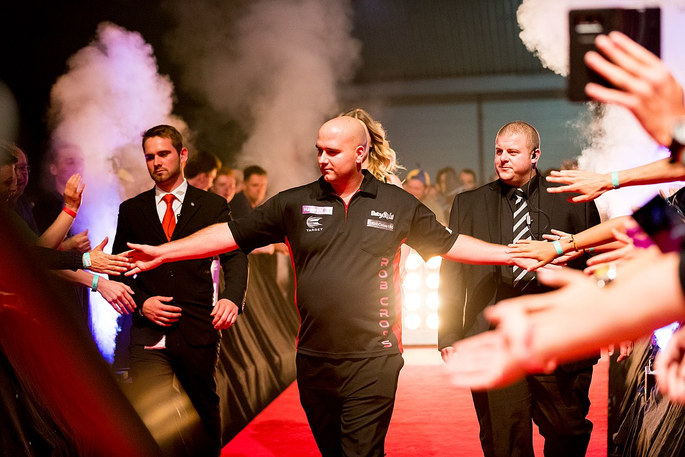
One of the key things that the Professional Darts Council wanted to do was to change the image of darts as a sport. Previously seen as a blokey world of smoking and drinking, they initially wanted to employ a PR consult in order to help them improve how the sport was perceived. They also wanted to bring in a younger audience, with the sport having previously been seen as the preserve of older men. The PDC figured the best way of doing this was to shake the idea of being a sporting event alone and instead develop the notion of it being a night out. Taking a note from boxing, players enter the arena to their theme tune, with female models accompanying them to the oche.
The chance of shedding the image of darts as a booze-filled event led to nothing but iced-water being served to players at the oche, which has also helped them from avoiding dehydration in arenas where the temperature can reach more than thirty-eight degrees. Players also began to have a good relationship with the crowds, crowned by the fact that it became an unofficial rule for PDC players to have a nickname. The likes of Eric ‘The Craft Cockney’ Bristow and Phil ‘The Power’ Taylor became beloved of the darts audience, as did players such as Jamie ‘Bravedart’ Harvey and Wayne ‘Hawaii Five-O-One’ Mardle.
Interesting facts
It’s safe to say that Phil ‘The Power’ Taylor is the king when it comes to the PDC World Championships. He has won the event an astonishing fourteen times and has been involved in nineteen finals. Given that there have only been thirty events (as of 2023), really does hammer home his dominance.
It probably comes as little surprise to hear that Michael van Gerwen has the highest average of any player for one game, at 114.05 in 2017 versus Raymond van Barneveld. The second highest is Phil Taylor at 111.21 in 2002 against Shayne Burgess. Taylor has actually amassed an astonishing fifty-six matches averaging over one hundred, compared with van Gerwen on 39 and Gary Anderson who comes in third with 23. There are other records worth mentioning, though, with the following being good examples:
- As well as having won the competition more than any other player, Phil Taylor is also the most successful in terms of matches won with 110 to his name
- He’s also lasted the longest without losing – 44 matches between 1995 and 2003
- In 2022/23 there were a record 901 180s in the tournament
- Michael Smith notched up a record 83 180’s in 2021/22
- Mitchell Clegg qualified for the tournament as a fifteen-year-old in 2007, going on to be the youngest player to actually compete in one at the age of 16 years and 37 days
- Clegg didn’t reach the final, meaning that Kirk Shepherd became the youngest player to do so when he reached the final the following year at the age of 21 and 88 days back in 2008
- One and a half million people watched the 2015 PDC World Championship Final in the UK, which is a record
- Dennis Priestley, Phil Taylor, Raymond van Barneveld and John Part were the only players to have won both the BDO and PDC World Championships
- John Part from Canada, Raymond van Barneveld and Michael van Gerwen, both from Holland, are the only overseas players to have won the PDC World Championship
